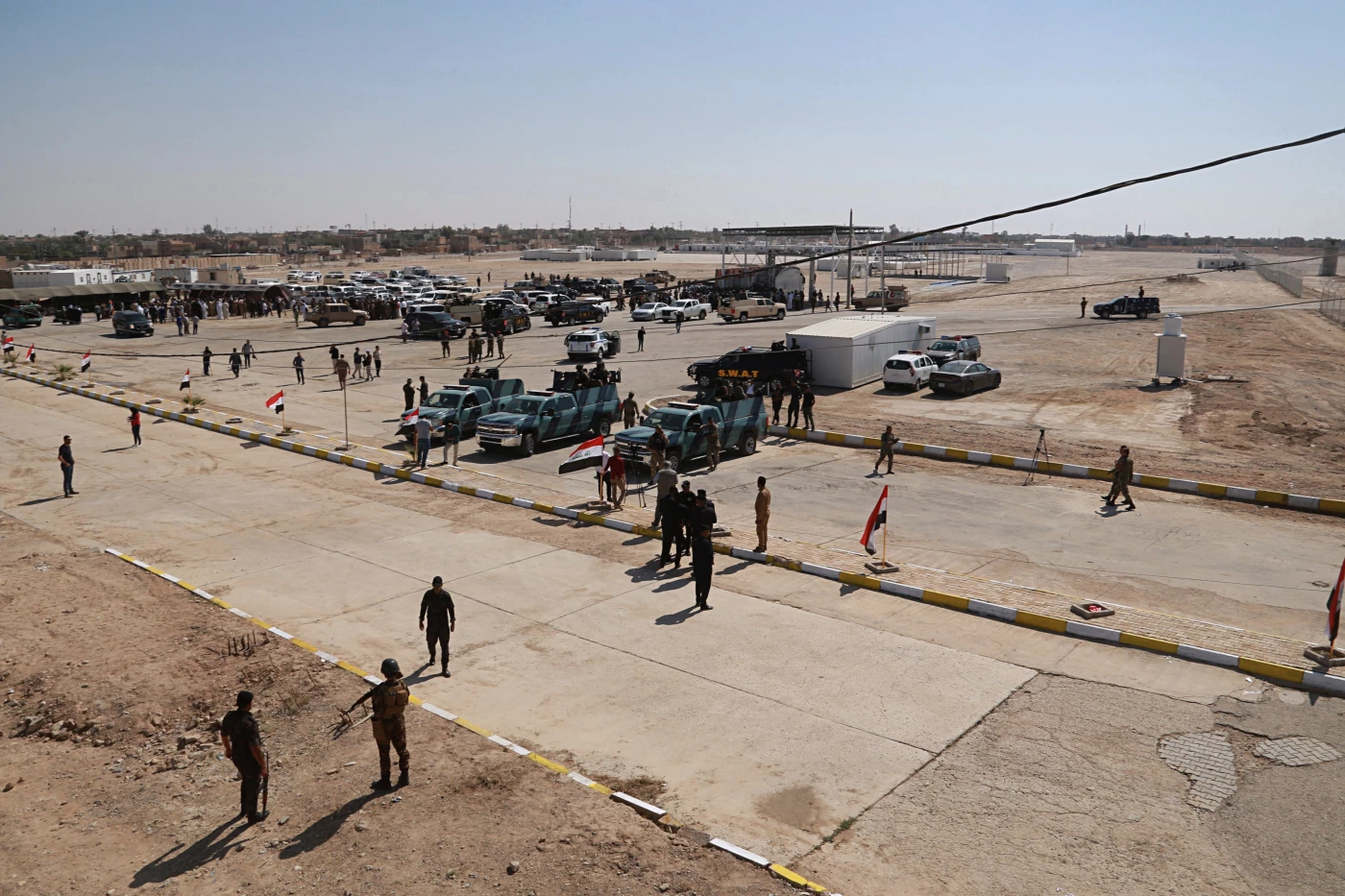ERBIL, Kurdistan Region of Iraq - Iraq’s ruling Shiite Coordination Framework rejected reports that it had received an Iranian request to provide support for Hezbollah through the al-Qaim border crossing.
Issam al-Kuraity, a member of the Framework, denied the claims in a statement to The New Region on Saturday.
“We categorically deny the reports circulated in some media outlets and social media platforms about the Framework or any of its components receiving messages from the Islamic Republic of Iran requesting financial, logistical, or any other form of support for Hezbollah,” Kuraity said.
He explained that what is being raised in this context is completely baseless and falls within attempts at media distortion and political confusion, aimed at damaging the image of the Coordination Framework and dragging it into issues beyond Iraq’s borders.
“The Framework’s priorities are clear: supporting Iraqi state institutions, strengthening internal stability, and moving forward in implementing the government’s program that serves the citizens,” he added.
Kuraity stressed that the Coordination Framework is not party to any regional or external agendas or commitments, adding that the faction places national interest above all else, and affirms its keenness to protect Iraq’s sovereignty and balanced relations with its regional and international environment.
“Neither Iraq nor the Framework has received any Iranian message regarding providing any support to Hezbollah (financial or otherwise) through the al-Qaim crossing, as alleged by hostile media reports,” hesaid.
Warnings over risks
Security and strategic affairs expert Ahmed al-Sharifi warned against Iraq providing any support to Hezbollah through the al-Qaim border crossing.
“Caution must be exercised regarding any Iranian request directed at Iraq related to funding Hezbollah through the al-Qaim border crossing. Such a step, if true, would pose a direct threat to Iraq’s security and stability, in addition to exposing it to international pressure and potential sanctions,” the expert told The New Region on Saturday.
Sharifi claimed that using border crossings for illicit deals opens the door to money and arms smuggling, and turns Iraq into an arena for settling regional and international scores.
“National interest requires protecting the country’s sovereignty and preventing the use of Iraqi territory or border points to support external parties.”
“The government and security agencies are required to tighten strict monitoring of border crossings and ensure they are not exploited in unlawful activities,” he added, noting that “preserving Iraq’s neutrality and preventing it from being dragged into regional conflicts is of utmost importance for national security.”
Earlier, Asharq Al-Awsat newspaper reported on what it described as “Iran’s new methods” to rebuild Hezbollah’s capabilities. The report referred to an Iranian “message” received by an Iraqi official, which allegedly included a request for “extraordinary facilities” at an official border crossing in western Iraq to transfer cash shipments to Iran’s ally in Lebanon. It noted that Tehran faces obstacles in Baghdad on this matter.
The newspaper claimed that the official did not respond to the Iranian message, citing “political and security complications.”
Tehran’s alleged attempts to aid Hezbollah comes amid international and local pressure to disarm the Lebanese group,
Ali Larijani, secretary of Iran’s Supreme National Security Council, conducted a trip to Iraq and Lebanon in mid-August, meeting with top officials and notable figures amid increasing pressure on Baghdad and Beirut from international partners, mainly Washington, to cut ties with Tehran.
Earlier in August, Lebanese Prime Minister Nawaf Salam announced a timeline for pro-Iran Hezbollah to lay down arms before the end of 2025. Ali-Akbar Velayati, a senior foreign policy advisor to Iran’s Supreme Leader Ali Khamenei, said that disarming Hezbollah is a policy dictated by the US and Israel, describing it as “a dream which will never come true.”
Founded in 1982 to oppose the Israeli invasion of Lebanon, Hezbollah has enjoyed strong ties with and received extensive material support from Iran, with the group forming the lynchpin of Tehran's “Axis of Resistance” across the Middle East.



 Facebook
Facebook
 LinkedIn
LinkedIn
 Telegram
Telegram
 X
X


